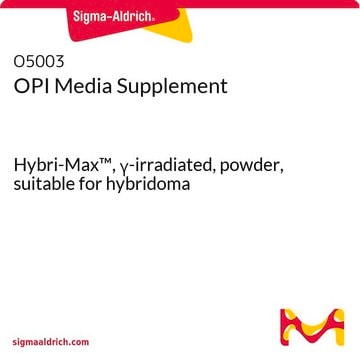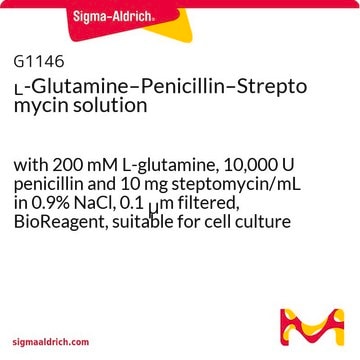G2150
L-Glutamine solution
200 mM, Hybri-Max™, sterile-filtered, suitable for hybridoma
Synonym(s):
L-Glutamine for cell culture
About This Item
Recommended Products
grade
Hybri-Max™
sterility
sterile-filtered
Assay
≥99% (TLC)
form
solution
technique(s)
cell culture | hybridoma: suitable
impurities
endotoxin, tested
color
clear colorless
shipped in
dry ice
storage temp.
−20°C
SMILES string
N[C@@H](CCC(N)=O)C(O)=O
InChI
1S/C5H10N2O3/c6-3(5(9)10)1-2-4(7)8/h3H,1-2,6H2,(H2,7,8)(H,9,10)/t3-/m0/s1
InChI key
ZDXPYRJPNDTMRX-VKHMYHEASA-N
Gene Information
rat ... Ggt1(116568)
Looking for similar products? Visit Product Comparison Guide
General description
Application
Preparation Note
Legal Information
Application
Storage Class Code
10 - Combustible liquids
WGK
nwg
Flash Point(F)
Not applicable
Flash Point(C)
Not applicable
Certificates of Analysis (COA)
Search for Certificates of Analysis (COA) by entering the products Lot/Batch Number. Lot and Batch Numbers can be found on a product’s label following the words ‘Lot’ or ‘Batch’.
Already Own This Product?
Find documentation for the products that you have recently purchased in the Document Library.
Customers Also Viewed
Chromatograms
application for HPLCOur team of scientists has experience in all areas of research including Life Science, Material Science, Chemical Synthesis, Chromatography, Analytical and many others.
Contact Technical Service







